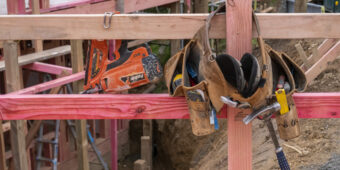Is cash in hand worth it?
14 Mar 2016, Business Tips, Featured, Prove Your Know How

The Inland Revenue has begun a campaign targeting cash jobs (‘cashies’) in the trades – it pays to know where you stand
Many people working within the building industry will have received a letter from the IRD notifying them of its latest target area – ‘cashies’.
While some may view it as an unfair notice, others could be feeling a sense of discomfort about what used to be standard practice in the building industry. So, what’s wrong with doing a cash job? What are the risks involved and what are your responsibilities?
When it comes to doing a cash job, the most obvious loser is the IRD. Cash jobs aren’t declared as income; therefore, no income tax, ACC and GST are paid on the amount earned.
“Who cares?” some might say. “It was only a couple of grand, what’s the harm?”
If every taxpayer got a ‘couple of grand’ tax-free in their pocket, it would quickly become a huge problem for the country. It would also be hypocritical, given that a common complaint among New Zealanders is that high-income earners don’t pay their share of taxes. Furthermore, cash jobs aren’t just a simple matter of saving on a tax bill, as there are a number of issues associated with them.
Risks of cash jobs
Those who get into the habit of doing cash jobs run the risk of not being paid ACC. While ACC may be viewed by some as just another tax, it is extremely important should a workplace accident occur – not an uncommon occurrence in the building industry.
If you are injured and cannot work, payouts by ACC are based on your previous year’s earnings. If you’ve done quite a few cash jobs, earnings will have been under-reported to the IRD. As a result, if you are injured and can’t work, the ACC payment you receive won’t reflect your true income, which could lead to financial hardship.
Another risk of cash jobs is, quite simply, the IRD’s interest in them. The IRD usually has a number of tax dollars that it aims to collect when it embarks on a new campaign. In order to meet target amounts, the IRD will closely scrutinise the construction sector through audits and reviews.
Even if the IRD finds no issues, it can still be a costly exercise for the company or person being reviewed. Not only are there expenses involved with having an accountant liaise with the IRD, there are also financial and health costs incurred due to time away from work, stress and late nights at the office.
If the IRD finds income that has not been declared, the person involved could expect to pay shortfall penalties, interest and the unpaid tax amount. The IRD will also put a ‘red flag’ next to that person’s name, which could prove problematic when it reviews future tax returns.
Your responsibilities
The majority of tradies may be offended by the IRD’s current focus on this area. Many honest people in the construction sector follow the rules and pay their taxes. Those people have nothing to worry about. Should the IRD request information, they will be able to provide it easily and no action will be taken.
However, there is always a group that ruins it for the rest and the information gathered from the campaign’s pilot program in Auckland suggests it’s a significant issue. According to a recent front-page article in The New Zealand Herald, 25% of Auckland construction jobs are paid for off the books.
Of these, 57% were initiated by the homeowners, who usually view it as an opportunity to get a discount. They can’t claim the income tax deduction or GST on the payment, it’s just a way to get something done cheaper.
If you find yourself in the position of being asked to do a cash job, keep in mind the risks of accepting:
1) Can you afford to go through an audit?
2) Can you afford the potential issues and loss of income, if you are injured?
3) Do you want the gaze of the IRD permanently on your business?
If you don’t want to take the risk, politely refuse and issue a quote. If you don’t get the contract, you will still be in a far better position than if you had done it and been caught. Let someone else take that risk and spend your time on legitimate work.
This scenario is not too dissimilar to discounting work in order to win it. If you discount too far, the job becomes unprofitable and results in wasted time, energy and money. So, why do essentially the same thing with cash jobs?
If you have any questions about points raised in this article or would like to discuss how your business is tracking, we can help. Please contact Peter van der Heijden at peter.vdh@crowehorwath.co.nz;
or your local Crowe Horwath advisor.
Register to earn LBP Points Sign in



